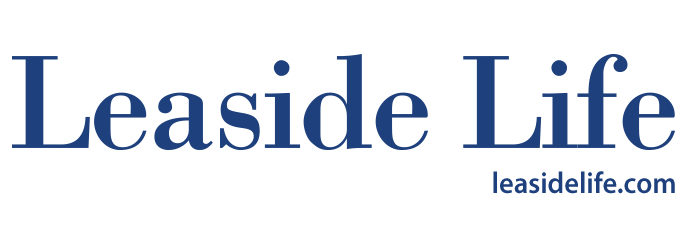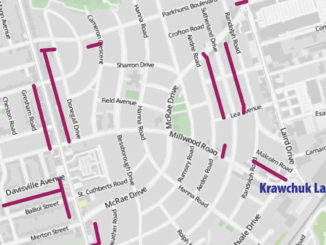Fudge! I desperately tried to turn the front door latch, and it wouldn’t budge. The key turned and the deadbolt opened but the door handle latch just would not cooperate. What the fudge! I had just locked this very same door 20 minutes earlier when leaving to drop the kids off at school. It was right after 8 and I had a day filled with meetings and errands. Went around to the back where we have a digital lock that caters to the needs of those same kids. Already behind in my day, at least I was in.
The culprit appeared to be a stuck door latch. With the help of a tiny wedge I managed to pry the door open, only to find that the latch was now stuck outward, meaning I could not shut the front door. I begin searching YouTube for answers. “I got this,” I thought to myself. Twenty minutes later, lock, latch, and door handle parts strewn about, I begrudgingly called ‘the locksmith’ as I couldn’t leave the house with the door swinging open and nobody at home. Four hours later and $750 lighter I have a new solid brass front door lock set which ‘the locksmith’ referred to as “far superior to anything retail” as he pointed to the crumbled and scattered remnants of my good old Schlage. That night I was speaking to my dad, and while laughing unsympathetically he told me I was paying a “LEASIDE TAX!” A Leaside tax? The working theory would be something like this: our neighbourhood’s ‘brand’ is an enviable one, and as a result there are some ‘pros’ we all enjoy… but conversely there are also some ‘cons’ that we all must bear.
There’s a bullseye on our backs
It’s no secret Leaside is a desirable place to live. Toronto Life’s “2018 Ultimate Neighbourhood Rankings” placed Leaside-Bennington at ninth in the city. I look around and see nice homes, nice cars, nice parks, nice, well-meaning people. Have we, as an unintended consequence of our brand image, become an attractive “target” for the knowing – do we now have a bullseye on our backs? Perhaps. Police have reported a 112% increase in vehicle thefts in 53 division this year. Home break-ins are frequently reported on the Leaside Community fb page. The increase in the number of inbound trick-or-treaters this year. The increase in new condo developments. And, with reference to my recent experience with the locksmith, the possibility of price discrimination to the unsuspecting. According to Investopedia, price discrimination is a pricing strategy that charges customers different prices for the same product or service. It’s also an illegal practice in Canada under the Competition Act.
I accept that rents are higher in the ’hood and can justify higher prices for our local retail vendors, or that if a business is seasonal then a ‘Muskoka tax’ might be warranted. And of course, those who have to be first to see the movie in a theatre, versus those who wait to rent it on iTunes, versus those who wait to watch it on Netflix will pay differing prices based on perceived value. That’s all fine. But what about service providers or online vendors? A recent report, Deloitte Digital and Salesforce (“Consumer Experience in the Retail Renaissance”), stated that 40% of brands currently using artificial intelligence (AI) to personalize the customer experience have used it to tailor pricing and promotions in real time. In an interview with Bloomberg, Uber acknowledged that it had a new fare system called ‘route-based pricing’ (in the U.S.), which means it calculates people’s ability to pay more to travel a certain route at a certain time of day. Travelling between a fancy neighbourhood and a downtown core during peak hours, for example, might be charged a premium because the company expects people will pay for it. In another research report, Amazon was shown to be using ‘cookies’ to identify certain customer attributes that would trigger forms of dynamic pricing when customers were flagged to be comparing prices for certain electronics. Different prices were displayed based on the consumers’ Internet surfing trail that would increase the probability of making a sale and the best price possible using a form of AI. Essentially, the ‘price discrimination game’ works best when pricing is not transparent. What makes it so unsettling is that often customers don’t know that they are getting different prices.
Are Leasiders complicit?
Bringing this closer to home, and with my own experience embarrassment and shame after dealing with ‘the locksmith,’ I began to ask around. At the ‘Dads’ walkabout’ during Halloween trick-or-treating I heard a number of stories of non-transparent pricing or perceived unsavoury negotiating tactics that provided some anecdotal evidence in support of the notion that a Leaside tax does exist. Certain roofing companies, ‘handy’ people, home renovators, domestic helpers, home cleaners, auto repairs, yard services, various home-related technicians, the list could go on. They felt like ‘whispers’ across the fence between neighbours. Nothing absolutely concrete but certainly there was an awareness that a game was afoot. It was also intimated that Leasiders are to blame because we remain complicit and simply pay the piper. Or that a premium price is warranted because Leasiders expect a higher level of quality and service. Or that haggling over price is unnerving and possibly uncivilized.
From an ethical standpoint and an admittedly Utopian lens, the cost of an hour of labour should remain consistent regardless of neighbourhood. But the pull of a free market and the allure of price elasticities, when combined with unknowing participants, makes for an outcome that could be viewed at best as opportunistic and at worst unfair and exploitive. So, what can we do? First, we need to eliminate our lack of price transparency for certain services. There are incidence reports posted regularly on the Leaside Community fb page, however often there can be a backlash if names are named. Somehow, we need to figure out a way to make it acceptable to identify certain providers with impunity. Or at least be aware of the possibility that a Leaside tax may be at play and seek the non-online, wise counsel of family, friends and neighbours.
Do you think there’s price discrimination in Leaside? Have you or do you know someone who’s paid the Leaside tax? How can we best collectively shelter ourselves from such a tax? Let us know at .





